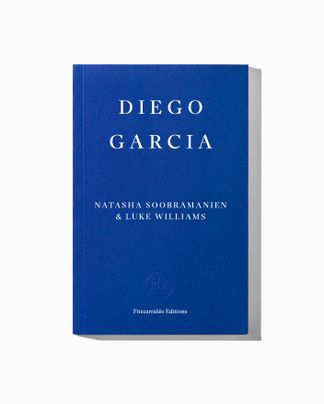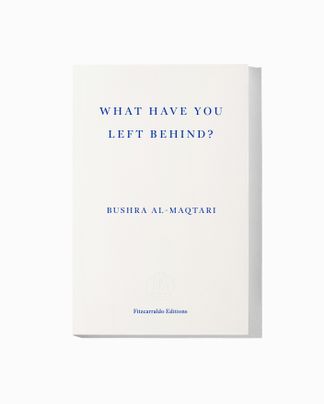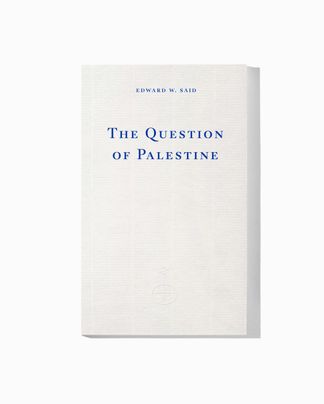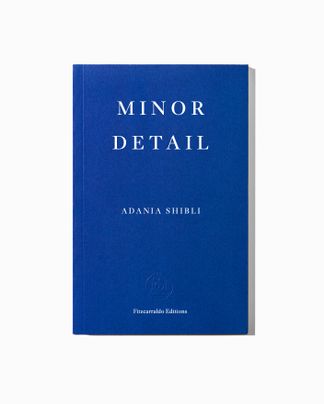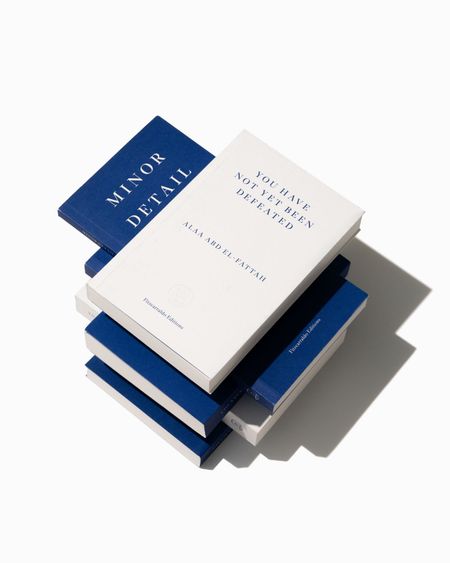A deeply moving and revelatory reading experience, the essays collected in Portrait of an Island on Fire form a searing account of Mauritius at a crucial moment in its history. Unceasing in its critiques of racist, patriarchal abuses of power, in its unpicking of the ills at the core of contemporary Mauritian society and their roots, the collection is a milestone in thinking about the lasting social and political effects of colonialism and how they play out at the level of government policy, the handling of environmental issues, in schools, in hospitals, in families, in language. For all its well-placed anger, Ariel Saramandi’s sparklingly intelligent and intimate debut is full of love and momentum – a push for a better future for Mauritius and, by extension, for the world.
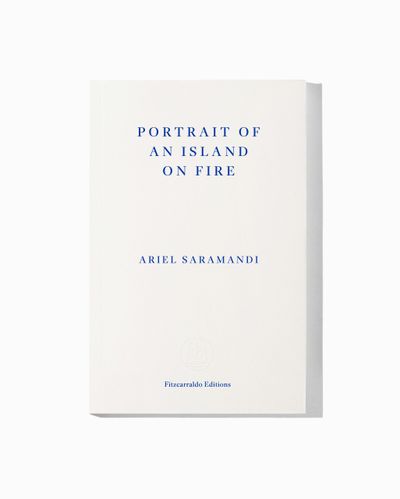
Portrait of an Island on Fire
French paperback with flaps, 352 pages
Published 19 June 2025
Portrait of an Island on Fire
ALL MY LANGUAGES
I used to think that it could have gone either way. If choosing a language to write and think in was primarily a matter of exposure – so that, in the end, we picked the tongue in which we were comfortable, the language with which we were surrounded – then I would have chosen French. Or, at the very least, I would also have written in French.
I was born in 1992, brought up in English, French and Kreol. I spoke English with my English father; French and English with my mother; French with my aunt, who took care of me and my sister while my mother worked; French, Kreol and a smattering of Bhojpuri with the women and men who cared for me alongside my aunt; French and Kreol outside of our home.
All the leading newspapers and media outlets are in French, a postcolonial particularity. It stems from the British administration’s decision not to impose English on the island’s (mostly Francophone) residents when they colonized the country in 1810. As a child, I’d read the papers after watching cartoons early in the morning on national TV: Babar, Petit Potam, Cat’s Eye and Sailor Moon were all either in French or French-dubbed. When I was around seven, our island was introduced to satellite television; to my knowledge no provider offered a mix of both English and French channels. My father made sure we alternated between English and French satellites every year, to balance out our tongues.
I spoke English at my international primary school. Later, when I joined a Catholic secondary school run by the Diocese, our textbook education was in English, but everyone spoke French. It was there that I learned the intricate ways in which language is linked to ethnicity in Mauritius.
The school was in the same town as the private French lycées, whose fees most of my classmates’ families wouldn’t have been able to afford. It was considered a better institution than the other public schools in the area. Within the school there was a separate building dedicated to prevocational education. The students attending these classes were often darker-skinned with unstraightened hair. They spoke Kreol outside of the classroom.
This was untenable to many of the schoolgirls I knew who would only speak French: Kreol was used sparingly, in jest, never spoken earnestly. These girls spent hours polishing their accents by watching French satellite television; lusted over the white boys of the lycée and the light-skinned boys at the school next door; straightened their hair, wore green contact lenses. When I was 15 I won a place at a prestigious state school, and the languages around me changed again: French was rarely heard, English, Kreol and Bhojpuri were dominant. Like the Catholic school, many of the girls were middle and lower-middle class; unlike my previous school, my classmates were now mostly Indo-Mauritian. The obsession with whiteness didn’t change: some of the girls would buy bleaching creams advertised by Bollywood stars.
But I would hesitate to delineate a precise order of things. In Mauritius there’s a tendency among people to equate light skin and wealth with languages of former European empires; darker skin and lower incomes with Kreol. People often assume I can’t speak Kreol, for instance. When I do speak Kreol, people tend to react in three main ways: some will converse with me without commenting on my accent; some will giggle at my accent and try to place it (the main theory is that my time in England has forever altered my tongue – ‘li anglez li!’); some will look at me in a kind of awe, as if I were a woman of lofty heights seeking to be ‘of the people’. It is the last reaction that hurts. There was a marked fourth way, too, more apparent when I was at secondary school: other children would ask me if I knew any Kreol swear words, as if, through the swears, through a performance of some crude idea of Kreol authenticity, I would show that I too belonged to this country.
And besides and beyond Kreol, locals across cultures generally assume that Indo-Mauritians prefer to speak English, whereas Creoles and Franco-Mauritians choose French. These linguistic schemata are blasted apart every day. None of them hold. A wealthy Indo-Mauritian child attending one of the lycées would probably speak French at home. And Kreol is spoken by over 90 per cent of us, across all spectrums of wealth and ethnicity.
I say 90 per cent, but the statistics are somewhat misleadingly presented. The 2022 census by Statistics Mauritius, for instance, seems to assume that Mauritians choose to speak in one language at home. ‘90% of people [are] reported to speak only Creole at home’; ‘5.1% speak Bhojpuri only’; ‘4.4% speak French only’ (my italics). Only, or, instead of and.
A conversation with my friend Marek Ahnee, a researcher at the Ecole des hautes études en sciences sociales (EHESS) in Paris, complicates this assumption of linguistic correlative order and single-language dominance. Both of us – and our families and friends in our Creole milieu – speak in a mix of French-English-Kreol every day without thinking about it. I’ve just said ‘allume l’aircon s’il te plait mo pe mor’, for instance.
I’ve seen our parents and our friends questioned for their supposed ‘allegiance’ to French, when they speak and write in English and Kreol just as perfectly. Marek tells me that when Creoles speak French, it’s often interpreted as French colonial mimicry. English, incongruously, is sometimes seen as a somewhat ‘liberated’ language. This whole line of thinking is another example of how colonial empires exist in relation to other colonial empires, and are experienced by social groups in different ways, ways which aren’t necessarily grounded in historical fact. English is perhaps felt to be ‘freer’ since, as is oft repeated, ‘the English abolished slavery’ – but it should be mandatory to follow the phrase up with ‘upon abolition in 1835 and until 1839, enslaved people were made to work as “apprentices” for seven and a half hours every day, without pay, “remunerated” in rations and land for cultivation, for the same people that had enslaved them. And, after 1839, the British government decided they would be properly free, but wouldn’t give them any financial compensation.’ Marek adds that French, which has been used (and is still used, in certain settings) as a tool of colonial power, is also a refuge for many Mauritian Creoles and marginalized Indo-Mauritian communities; it even serves as an instrument of social mobility for these people.
*
These supposedly neat equations between skin tone and language will hopefully go rancid in my lifetime. But the tough, complex systems of caste and white supremacy will take the efforts of a nation to dismantle. And besides race, there is money. A mother tongue, the product of an intersection of race and history and class. If it weren’t for my father – his excellent position, his English nationality that I inherited, my private primary school, the English bookshops to which I travelled, the English books I amassed – I would probably be writing in French. Perhaps I wouldn’t be a writer at all.
Mauritius in the mid-1990s: you could count the number of bookstores on one hand. They sold an excessive number of self-help books, as well as copies of classics in strange fonts, reprinted by local publishers with or without permission. The municipal libraries were (and still are) pathetically stocked. The British Council’s library existed back then – it closed in 2016; English officials didn’t think there’d be much interest in keeping it open – but I don’t remember my parents taking me there. The Institut Français de Maurice’s gorgeous mediatheque only opened in 2010. I don’t know where their first library was, and definitely wasn’t taken there. As for Kreol, the only book I had in Kreol was a poetry pamphlet. There
were no Kreol books for children back then.
I had books in French: picture books of Disney movies, the Martine series, Hector le Castor and friends. These French books, bought in Mauritius, couldn’t rival the number of books I had in English from abroad. There was a catalogue that my primary school sent out once or twice a year: I’d circle the ones I wanted most to read, the school would order them, and they’d arrive a few months later. My father also travelled several times a year, and there was often a book or magazine packed inside his suitcase for me when he returned. Once a year we’d all go to England. My parents would leave me alone in one of the bookshops in Canterbury and I’d emerge with ten to fifteen books. I depended on those bookshops well into my teenage years, when it seemed that people all over the world were able to buy books online except for me: Mauritius didn’t exist in the ‘choose your country’ dropdown menu at most checkouts.
(…)
‘Ariel Saramandi’s interweaving essay collection presents a courageous, stringent and mesmerizing portrait of the island, her home, and the social and political effects of colonialism. She’s a great writer.’
— Wendy Erskine, The Observer
‘With righteous anger and willingness to explore the root of problems, the book asks challenging and thoughtful questions … addressing difficult subjects with care and considering myriad perspectives…. Portrait of an Island on Fire is a nuanced and powerful look at race, influence and colonial legacy in Mauritius.’
— Foreword Reviews
‘Portrait of an Island on Fire is a fascinating look at Mauritius, a personal account of a homeland told with rage, rigour and love. Saramandi brilliantly, subtly teases out the threads of Mauritian history, politics and culture, honouring both the particularities of this unique place and showing the troubled connections – rapacious capitalism, racism, creeping authoritarianism, right-wing paranoia – that seem to stretch across the whole of our fragile planet. This is a beautifully written book of deep knowledge, righteous anger and fierce hope.’
— Lydia Kiesling, author of Mobility
‘Ariel Saramandi is a courageous and mesmerizing new voice, a chronicler of contemporary Mauritius whose writing refracts the influences of her Mauritian compatriots, Ananda Devi, Nathacha Appanah and Shenaz Patel in French, Lindsey Collen in English, in a voice which is wholly her own. Portrait of an Island on Fire unpicks the knots of Mauritius’s entangled histories – of plantation slavery, of indentured labour, of colonization, of communalism and patriarchy – laying out the threads which make up her own history of ancestral oppression and structure her lived experience of privilege and pain; which form the fabric of contemporary capitalist Mauritius, and its particular intersections of race, class, gender and language – its politics – and its particular forms of the white supremacy, anti-Blackness and toxic masculinity acted out on the bodies of those without power the world over. Saramandi is laser-focused in her rage, joyful in both her refusal to look away, and in her insistence on what sustains her: writing, motherhood, her marriage, friendships, community – and the beauty of her island.’
— Natasha Soobramanien, co-author of Diego Garcia
‘With an unflinching, searing clarity, Ariel Saramandi opens the festering wounds that have been sewn shut by silence in Mauritius since the time of colonialism and slavery. This legacy of racism sheds light on new forms of economic enslavement, the consequences of climate warming, abortion rights, old and new misogyny, the utter irresponsibility of successive governments. This important book is both heartbreaking and a wake-up call: is it too late to act? A small, supposedly paradisiac island is teetering on a brink – a mirror of our world. But who really cares?’
— Ananda Devi, author of Eve Out of Her Ruins
‘These overlapping essays form a coruscating portrait of a place and make for a searing indictment of our times. Portrait of an Island on Fire is written with a formidable intelligence and with a precisely-targeted rage, and comes from a place of passion and of deep love. Ariel Saramandi is a writer of Mauritius and for our whole twenty-first century world; these essays are cris de coeur, they are wake-up calls – they are essays everyone should read.’
— Lucy Caldwell, author of These Days
Ariel Saramandi is a Mauritian writer. Her work has been published in Granta, The White Review, LA Review of Books and Stinging Fly, among other outlets.

